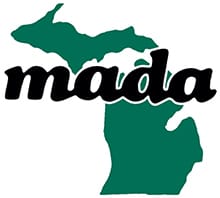A recent blog article from the FTC warns consumers about a new vehicle history report scam, and while dealerships are unlikely to be a target, it doesn’t hurt to be aware…
The FTC has been hearing about a new scam targeting people who are selling their cars online. They’re getting calls or texts from people who claim to be interested in buying the car – but first want to see a car history report. They ask the seller to get the report from a specific website, where the seller needs to enter some information and pay about $20 by credit card for the report. The seller then sends it to the supposed buyer but never hears back. Weird, huh?
Well, it gets weirder. When the car sellers go to one of these websites, they’re automatically redirected to sites ending in ‘.vin’ – which seems like it might be related to your car’s vehicle identification number or VIN, right? Scammers hope you’ll think that, but no. In this case, .vin is a relatively new website “domain” – like .com or .org – that groups can apply to use. This domain was intended to be used for sites that relate to wine, since “vin” is the French word for wine, but others are not prevented from using it. So yes, that’s a clever take on .vin for cars, yes, but you still might want to think twice if anyone asks you to do car-related business on a site ending in .vin.
So, if you are selling a car online and someone asks you to get a car history report from a specific site, ask why and think twice. You may have no way of knowing who operates the site, especially if it’s one you’ve never heard of. It might be a ruse to get your personal information, including your credit card account number. It also could be a way for companies called “lead generators” to get information, which they sell to third parties for advertising and marketing purposes.

